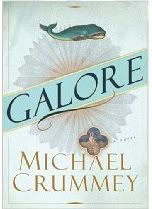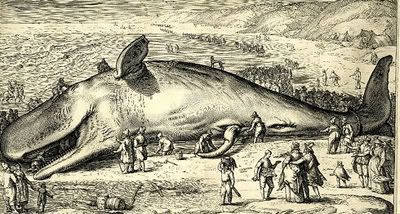Book Review: GALORE by Michael Crummey
Michael Crummey was born & raised in Newfoundland, lives there still, and has set all of his meticulously researched novels & collections of short stories thus far in this beautiful, windswept, and harshly-demanding Canadian province.
 GALORE
GALORE is set in the outport villages of Paradise Deep and The Gut, joined by the Tolt Road over the headland between them, in an undefined period that covers most of the nineteenth century and the first few years of the twentieth. The novel chronicles the lives of two rival families (the Sellers and the Devines) for six generations, and I often referred to the genealogy chart at the front of the book, especially during my first reading.
Inspired by the works of Gabriel García Márquez, Crummey has combined the starkly difficult conditions of pioneer outporters with a touch of magical realism. According to Wikipedia, magical realism is “an artistic genre in which magical elements or illogical scenarios appear in an otherwise realistic or even ‘normal’ setting.” This is Crummey’s first use of the method in his novels.
Part 1 of Galore more or less moves around the life of Mary Tryphena Devine who is nine years old the winter day that a whale beaches itself in the bay. From the whale’s belly emerges, half-dead, the man who becomes known as Judah, the Big White, whose presence will affect the lives of all in the port, and none more so than Mary Tryphena’s.

As Mary Tryphena matures, marries, has sons (one illegitimate), and then grandchildren, the story goes back and forth between the history of Mary T.’s grandmother (Devine’s Widow) and her parents, and the interconnection with King-Me Sellers and his grandson Absalom. The boy Absalom has fallen in love Mary T., who unbeknownst to him, is his first cousin. For this, he is banished to England for half a decade. While he is gone, Mary Tryphena is married to someone else and is lost to him.
Nearly four decades pass in the intermission between Parts 1 and 2, and we pick up the story with Mary Tryphena an old woman with the community role that her grandmother, Devine’s Widow, had. We learn of the events of the intervening years through the eyes of two grown brothers we last knew as boys who ferry the young newly-arrived Dr. Harold Newman to patients by boat, by dog-sled and on foot.
As they tell the stories that the reader already knows, it becomes clear that a large number of the people in the community do not believe the stories that have been passed on. It’s here that magical realism that has been interwoven into Part 1 is brought into question.
Did Judah really come out of the belly of the whale? Did he indeed bring the squid, and then fish galore? Did Callum really see the mermaid that the Woundy brothers nearly went overboard for? Was Jabez Trim’s bible really found in the gullet of a cod? How do we explain Mr. Gallagher?
I’m not a fan of magical realism, but I think that part of the reason that the author could use the technique so readily and successfully in the first half of the saga is the vacuum of any other explanation of other-worldly phenomena. The itinerant priest who served the marrying, baptizing, and burying needs of the Catholic population was an agent of superstition. (Not that the population was any better served in later times with the Protestant Reverend Dodge and the Catholic priest of the season. Both applied scriptures harshly and the Catholic church especially meddled in the political affairs of the people, threatening ex-communication for anyone who joined the Fishermen’s Protective Union in the early years of the twentieth century.)
Perhaps I just relate more easily to the starkness of early Newfoundland life than to the heat of Central America, but I found that, although I could not stomach Márquez, I loved the effect in Crummey’s Galore.

One of the effects that I felt played a huge part in this novel is the indeterminate passage of time. Crummey might pick up the next paragraph, page or chapter with the following week, but just as often with thirty years in the past or ten years hence, with no explanation or placement. At first, I found this disconcerting but as the story developed, I found it to be one of its greatest strengths. Dates were not important, particularly in Part 1.
Time passed from one generation to the next, affected strongly by the last, and life went on unchanged. World events had little, if any, impact on the people’s lives. There was no change in circumstances, no accumulation of material goods, no inheritances. There was simply the unending drudgery, cold, hunger, fishing, the cycles of plenty and want, the love, and the hate that remained the same for generation after generation. Hopeless circumstances and a futile existence.
Galore is not a happy book, but an amazingly powerful read. I highly recommend that you do just that.
Four and one-half stars out of five.

Shop Independent Bookstores
Shop Chapters.Indigo.ca
Shop Amazon.com

This is a stop on the Literary Road Trip.
Michael Crummey is an Atlantic Canadian author.
Technorati Tags: Galore, Michael Crummey, Paradise Deep, Mary Tryphena Devine, Absalom Sellers, beached whale, magical realism, Newfoundland, fishing outports
Going to put this on my library request list now – thanks! I was in a ‘what am I going to read next?’ mood tonight – so this is very timely!
Have you read ‘Latitudes of Melt’ by Joan Clark? Lovely, and with much of the barren but beautiful imagery you spoke of.
I’m glad I could help make your decision!
I’ve read Audience of Chairs, but Latitudes of Melt is still in my TBR list. I’ll check it out soon.
I admired Marquez’s novel, but I loved Galore. I felt like he inhabited the prose in telling this story, which made me feel more a part of it, too.
Michael Crummey’s prose is – well, wonderful, BIP. It was so easy to feel the grinding poverty of life in 18th & 19th century Newfoundland.